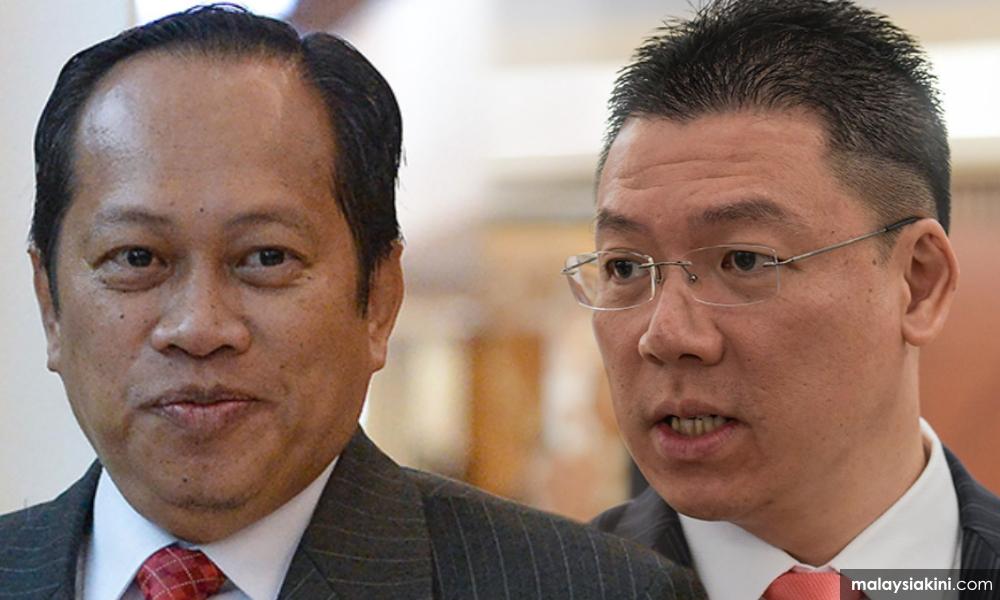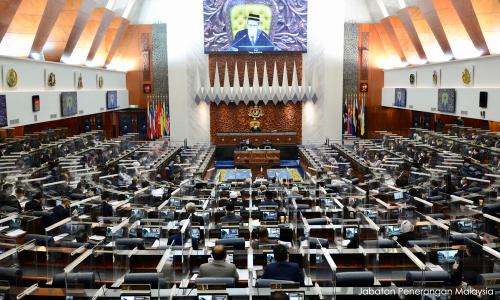LETTER | Parliamentary reforms should start with speaker, deputy speakers
LETTER | Parliament sits today, two days after its 62nd anniversary. The first meeting of the fourth session of the 14th Parliament will last for 17 days until Oct 12 and is the first under the government led by Prime Minister Ismail Sabri Yaakob.
While it is set to focus on issues relating to the country’s recovery following the Covid-19 outbreak as well as the aid packages to provide relief to the people, the focus will also be the election of a new Dewan Rakyat deputy speaker to replace Azalina Othman Said who on Aug 23 confirmed she had resigned.
Pontian MP Ahmad Maslan, who is the candidate from the government bloc, and Teluk Intan MP Nga Kor Ming, who is Pakatan Harapan’s candidate, reportedly will vie for the vacant post.
While the offices of the Dewan Rakyat speaker and deputy speakers are created by the Federal Constitution (Article 57), the office of parliamentary speaker is ancient and centuries old.
It goes back to the origins of the British Parliament and was central to the battle for supremacy between Parliament and the monarchy.
For that reason alone, the office of the speaker is a chequered one. History records a number of speakers who died violent deaths by way of execution or murder while others were imprisoned, impeached, or expelled from office.
That explains why historically the office has not been an envied one. Who would want to be elected the representative of a body of lawmakers who would assert supremacy over the monarch?
Philip Laundy recorded an occasion in 1629 when the House of Commons expressed its wish not to comply with a royal command to adjourn. The King then still wielded great influence and power and the speaker was supposed to be “the King’s man”. Yet he was also a servant of the House.
Dangerous vocation
It was a dangerous vocation.
There was, therefore, a “genuine reluctance with which early Speakers accepted the office” – if at all. (see Philip Laundy, The Office of Speaker in the Parliaments of the Commonwealth (London: Quiller, 1984)
But perhaps not speaker William Lenthall. In 1642, King Charles I, accompanied by an armed escort, stormed into the House, sat in the speaker’s chair, and demanded the surrender of five parliamentary leaders on a charge of treason.
Before the king, Lenthall customarily fell on his knees. But his words to the king have been recorded for perpetuity and have since defined the speaker’s role vis-à-vis Parliament and the monarch. Those famous words were:
“May it please Your Majesty, I have neither eyes to see, nor tongue to speak in this place, but as the House is pleased to direct me, whose servant I am here; and I humbly beg Your Majesty’s pardon that I cannot give any other answer than this to what Your Majesty is pleased to demand of me.”
Lenthall’s words heralded the end of the monarch’s influence over the office. But they also marked the beginning of the government’s authority over it. The office of parliamentary speaker was no longer unenvied.
There was no longer the “genuine reluctance” to accept it. It became an appointment “much coveted by members of the party in power and used to advance its policies.” (See 'The Speaker and Other Presiding Officers of the House' here.)
Speakers who were elected often held government posts. They routinely participated in debates and set the agenda of parliamentary sittings by determining when and which bills should be considered.
It was speaker Arthur Onslow (House of Commons speaker from 1735 to 1754) who ebbed the tide. Known for his integrity, Onslow “loosened the ties to government and established the standards of independence and impartiality which have come to be associated with the office of Speaker”.
Politically impartial
A century later, the principle of speakers abstaining from all political activity became established.
According to this principle, the speaker renounces all party affiliation and when seeking re-election to the House, runs as a speaker.
This principle, unfortunately, has not taken root in Malaysia. But to be fair, neither has it in Canada and Australia. In these two jurisdictions, although the speaker eschews partisan political activity, he or she does not make a complete break.
So, it is no surprise that Prime Minister Ismail Sabri Yaakob has reportedly nominated Ahmad Maslan, who is also Umno secretary-general, as the sole candidate for the Dewan Rakyat deputy speaker post.
But the modern speaker and deputy speakers have got to be politically impartial. They are expected to avoid taking a political stance or favouring particular interests over others. And therefore, they should resign from their party or parties on appointment while still serving their constituencies as MPs.

As such, will Ahmad or Nga (above) resign for their party post if elected as the new Dewan Rakyat deputy speaker?
The Coalition for Clean and Fair Elections, or Bersih 2.0, has rightly posed the question to Ahmad and Nga. This is to ensure that they are truly independent, free of party influence and carry out their duties without fear or favour of their respective parties.
But equally important is the integrity of the speaker and deputy speakers. Again, Bersih 2.0 has rightly raised concerns at Ahmad's ongoing trial involving money laundering and giving a false statement to the MACC.
"Can the government guarantee that he won't use his position to escape his charges?” Bersih 2.0 said.
Impartiality and integrity are therefore two hallmarks of a good speaker and deputy speakers. These are not rare qualities in highly qualified persons, but rather common qualities in ordinary persons.
As Laundy wrote:
“The office of Speaker does not demand rare qualities. It demands common qualities in a rare degree. A good Speaker is not necessarily an extraordinary person, therefore; he is an ordinary person, but an ordinary person of the highest calibre.”
Let such ordinary persons be our speaker and deputy speakers. And let the principle of speakers abstaining from all political activity take its root on the 62nd anniversary of our Parliament.
It’s reform time. It should start with the office of speaker and deputy speaker.
The views expressed here are those of the author/contributor and do not necessarily represent the views of Malaysiakini.
RM12.50 / month
- Unlimited access to award-winning journalism
- Comment and share your opinions on all our articles
- Gift interesting stories to your friends
- Tax deductable
